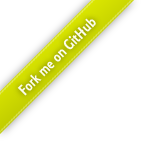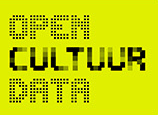Open Cultuur Data (Open Culture Data) is a network of cultural professionals, developers, designers, copyright specialists and open data experts, that opens data from the cultural heritage sector and encourages the development of valuable cultural applications that started in September 2011. This makes culture accessible in new ways to a broader public.
The network has been awarded in 2012 with the European Public Sector Information Platform Trailblazer award as an initiative which has done something new and exciting with open data in Europe over the past year.
On the 25th of May the Open Culture Data API was launched. You can find all information about the API here.
What?
We consider Open Culture Data to at least have the following qualities:
1. Open Culture Data includes digital representations of collection objects and/or knowledge and information of cultural institutions and initiatives about their collections, activities and organization
2. Everyone can consult, use, spread and re-use Open Culture Data (through an open license or by making material available in the Public Domain).
3. Open Culture Data is available in a digital (standard) format that makes re-use possible.
4. The structure and possible applications of Open Culture Data are documented, for instance in a data blog (some examples in Dutch here)
5. The provider of the Open Culture Data is prepared to answer questions about the data from interested parties and respects the efforts that it costs that the open data community invests in developing new applications.
Why?
Cultural institutions (museums, archives, heritage organizations, theater companies, libraries, etc.) have a wealth of information locked up in their vaults. They preserve and store unique collections, they have an enormous amount of knowledge about these collections (context, metadata), produce information on current events and exhibitions, keep up visitors information, collect reactions from visitors and for example hold financial information.
More and more cultural institutions make this information digitally accessible. This creates many new opportunities – for the institutions themselves but also for third parties – to use this information to create new applications and websites, allowing us to participate in arts and culture in new ways. However, this data is often very difficult to access for others. End users are often limited to (re-)use the data and often the data is technically badly approachable. Institutions sometimes manage data of which they don’t yet know the full potential and (social) value.
How?
Open Cultuur Data supports the cultural heritage sector in the release of culture data in the following way:
- encourage making more open culture data available
- collecting and disseminating open culture data via an open digital infrastructure
- collecting and sharing knowledge and experience with open culture data
- encouraging the making of new applications based on open culture data
Open Cultuur Data achieves this through the following activities:
- workshops, presentations and publications on open culture data
- support cultural institutions in opening up their datasets
- masterclass open data for cultural heritage institutions
- competition with special awards for applications made with open culture data
The aim of Open Cultuur Data is to anchor the cultural sector in the international open data movement.
Accomplishments?
- 39 datasets of 22 cultural institutions, including the Rijksmuseum, the Regionaal Archief Leiden and Visserijmuseum Zoutkamp
- 40 apps made with Open Culture Data, including the winner of the Apps4NL 2011 competition
- 17 participants in our Masterclass 2012
- A sister initiative in Belgium
Who?
Open Cultuur Data is a joint initiative of Kennisland, Open State Foundation and the Netherlands Institute for Sound and Vision. The initiative received financial support in the past of Images for the Future and Creative Commons Netherlands. The Open Cultuur Data Challengers program is financially supported by the Dutch Ministry of Education, Culture and Science.


 Twitter
Twitter Mailinglist
Mailinglist